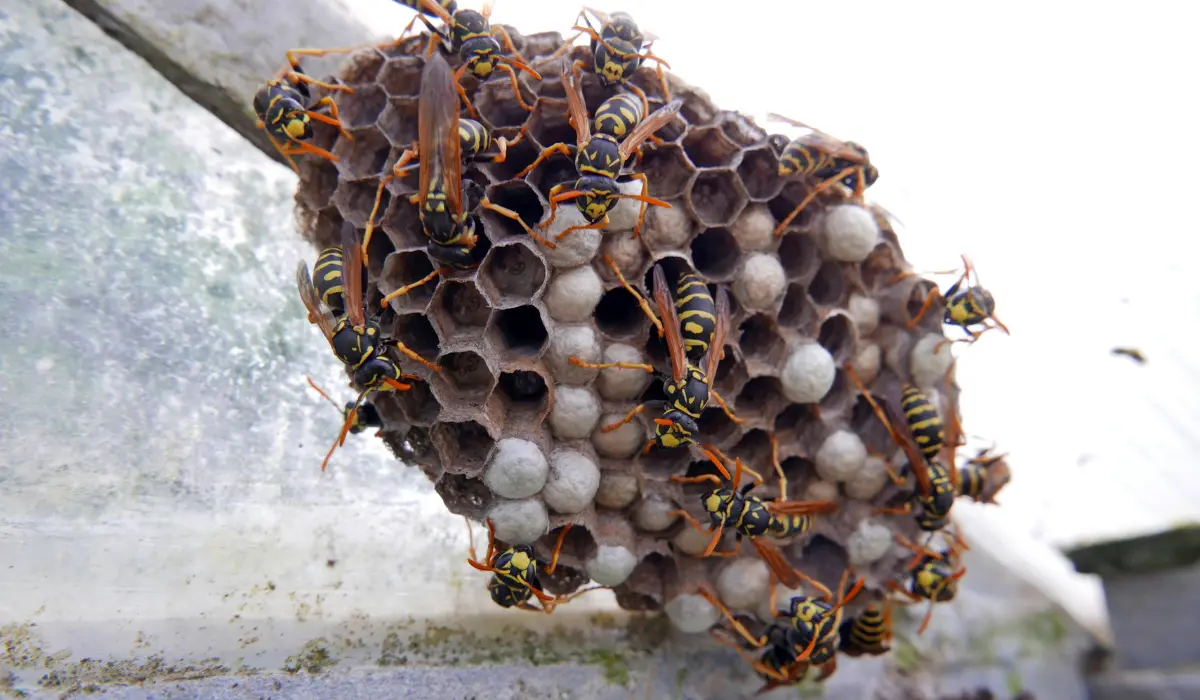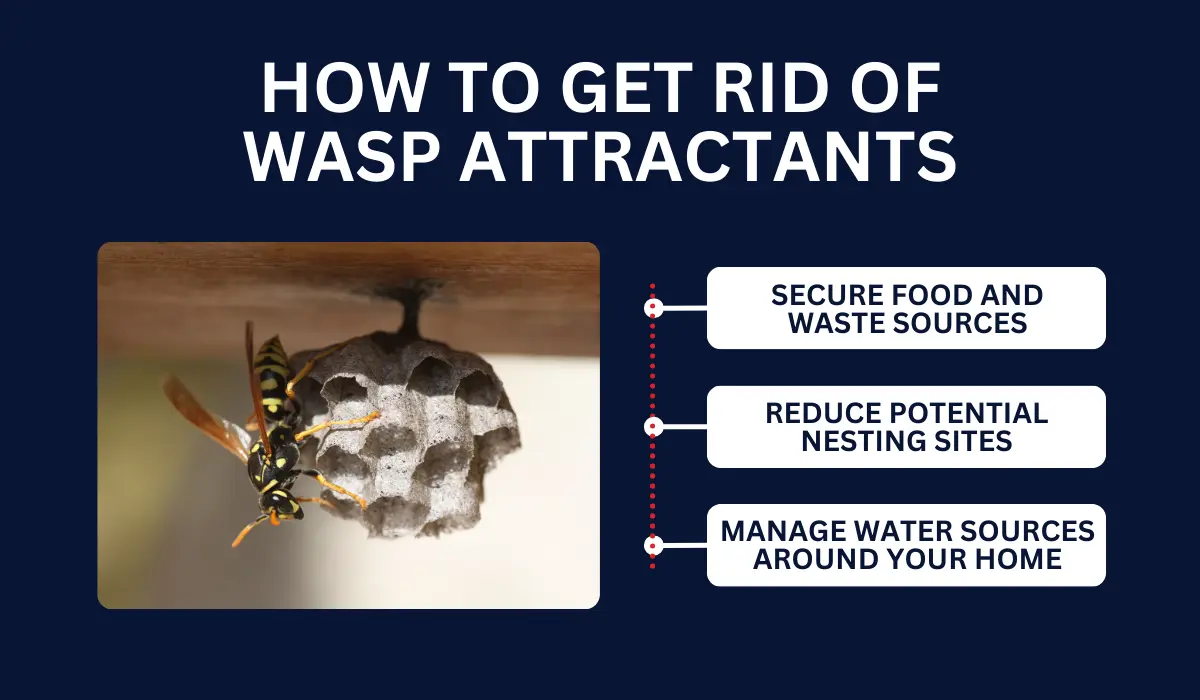
Wasps invading your picnic can be a real buzzkill. Attracted by sugary foods and fragrant flowers, these uninvited guests can quickly turn any outdoor event into a stressful situation.
Ever wondered why your backyard is suddenly a wasp hotspot? Keep reading to find out what draws them in and how to keep your space wasp-free.
Key Takeaways
- Food sources, nesting sites, water availability, and seasonal factors attract wasps to your home.
- Recognizing increased wasp activity, visible nests, and chewed wood can help identify a growing wasp problem.
- Reducing wasp attractants involves securing food, reducing nesting spots, and managing water sources.
- You can try natural methods, such as sealing up any holes they might use to enter or calling a pest control company to keep wasps away.
1. Food Sources Around Your House
Wasps are attracted to various food sources around your home, particularly sugary foods and proteins.
They often hover around trash cans that are not tightly sealed or around picnic tables laden with food. Fruit trees and fallen fruits on the ground can attract wasps as they love the sweet fruit juice.
These insects are also drawn to open soda cans and other sources of sugary liquids. Flower nectar and even garbage cans with food waste can be a magnet for them.
2. Nesting Sites In and Around Your Property
Wasps tend to build their nests in sheltered and hard-to-find locations. Eaves of houses, crevices in walls, and other secluded areas are common spots. These flying insects prefer places where they feel protected.
They can build nests under decks, sheds, or even crevices within building structures. This behavior can pose a problem, bringing them into close contact with humans.
3. Water Sources Near Your Home
Wasps need water to survive, especially in hot weather. They are often found near standing water sources like bird baths, ponds, or even puddles in your yard. This need for hydration draws them closer to human activity.
Any water source, including leaking garden hoses or water features, can attract them. Wasps also get water from dew on plants or from pet water bowls.
4. Seasonal Factors
Late summer and early fall mark the peak of wasp activity. During this period, wasp colonies are at their largest. After the peak, the queen may start to reduce or stop laying eggs as the colony prepares for diapause, a process like hibernation.
More workers are looking for food to feed larvae and sustain the colony. As the insect population declines, their natural food sources become scarce. So, they turn to human food sources, creating more conflicts with people.
HOW TO IDENTIFY A GROWING WASP PROBLEM
Recognizing a growing wasp problem is crucial for preventing potential risks. If left unchecked, wasps can become increasingly aggressive.
As homeowners, knowing the signs early can save you from a massive wasp infestation and potential harm.
- More wasps than usual around your property may show they may be nesting nearby.
- Look for papery, gray nests in sheltered areas like eaves, trees, or sheds. Different species of wasps may build in various locations.
- Some wasps, like yellow jackets, chew wood to build their nests, leaving behind small fragments.
HOW TO GET RID OF WASP ATTRACTANTS

Keeping wasps away means securing food and waste, reducing nesting spots, and managing water sources.
Secure Food and Waste Sources
Wasps are drawn to food, especially sweets and protein-rich items. To get rid of your pest problem, effectively manage food and waste sources by removing any easy access they might find appealing.
Reduce Potential Nesting Sites
Wasps look for safe spots to build their new homes, often in crevices, eaves, and sheds. If not addressed quickly, this can become a home problem. Reduce these potential sites to prevent them from building nests around your home in the first place.
Manage Water Sources Around Your Home
Lessen their interest by carefully managing water sources and ensuring they do not have easy access. This approach not only reduces water-based attractants for wasps but also helps keep other pests, like aphids, under control.
WHEN TO CALL A PROFESSIONAL
If wasps have built a nest near a frequently used area, like a porch or entrance, it’s time to consider pest control. Wasps can be highly territorial, and their stingers can cause serious allergic reactions in some people.
Whether you’re in Baton Rouge or New Orleans, seeking expert help should be easy. For immediate intervention for a severe infestation, let Lajaunie’s wasp control specialists tailor a solution that’s right for your home.
Related: What Color Keeps Wasps Away?
Related: When Do Wasps Go Away in Louisiana?